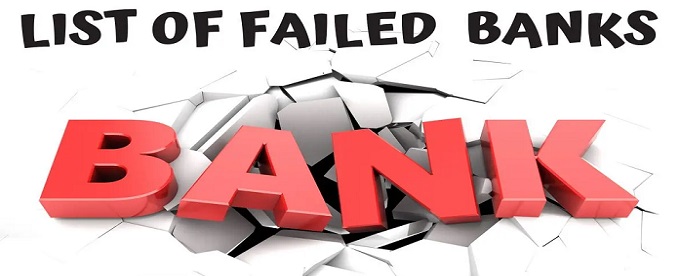E-Financial
Buhari Government Rakes in N11.5 Trillion from Firms as Taxes – Report

Federal government has raked in N11.5tn from taxes paid by business organisations under the administration of President Muhammadu Buhari, according to findings by The Punch Newspaper.

Data sourced from Company Income Tax reports published by the National Bureau of Statistics between 2015 and 2022 showed CIT collected by the Federal Inland Revenue Service stood at N1.3tn when the President assumed office in 2015 and dipped by 26 per cent to N1tn in 2016 when the country’s economy went into recession due a significant drop in oil prices.
It maintained an upward trajectory between 2017 and 2020, as the government generated a total of N5.3tn during this period.
Companies Income Tax is a tax on the profits of incorporated entities in Nigeria. It also includes the tax on the profits of non-resident companies carrying on business in Nigeria. The tax is paid by limited liability companies inclusive of the public limited liability companies. It is commonly referred to as a corporate tax.
According to the Punch, the CIT rate is 30 per cent for large companies (i.e. companies with gross turnover greater than NGN 100m), assessed on a preceding year basis (i.e. tax is charged on profits for the accounting year ending in the year preceding assessment).
The Federal Government earned N1.6tn from corporate tax in 2021 and made a record N2tn revenue from CIT in the three quarters of last year.
According to the data, the highest contributors to the CIT were the manufacturing, Information Communication Technology and financial services sectors.
Also a critical evaluation of 2022’s Company Income Tax records showed a significant hike in taxes paid by companies across the board.
For example, tax from firms in the information and communication sector rose by 158.51 per cent from N51.05bn in the third quarter of 2021 to N131.97bn in the corresponding period in 2022.
In the same vein, manufacturers paid the most taxes during the period in review, as the Federal Government increased the number of taxes collectable by the Federal Inland Revenue Services from 39 to 61 items.
Some of the new taxes as contained in the schedule to the taxes and levies (Approved list for collection) Act (Amendment Order), 2015, include “national information technology development levy, economic development levy, environmental (ecological) fee or levy; inter-state road taxes; mining, milling and quarrying fee; infrastructure maintenance charge; social services contribution tax, and wharf landing fee where applicable.
Others are entertainment tax, produce sales tax, property tax (where applicable); fire service charge; slaughter or abattoir fee, where state finance is involved, etc.”
In the same vein, checks by The Punch revealed that CIT paid by manufacturers increased by 52.3 per cent from N91.2bn paid in the third quarter of 2021 to N138.9bn in the corresponding quarter of 2022.
Speaking in an interview with The Punch, Michael Olawale-Cole, president of the Lagos Chamber of Commerce and Industry,, said the productive sector was being overburdened by taxes because of the government’s inability to widen the tax bracket and capture more taxpayers.
Olawale-Cole further advised the government to devise means of protecting its sources of revenue rather than resort to aggressive taxation whenever it encounters a revenue shortfall.
He said, “So, the government needs money, but what we are saying is that the government is just putting pressure on the same people as opposed to developing to bring more people into the tax bracket. That is the major issue. There are a lot of people who are not paying taxes but are making money in this country.
“So, the government should find a way of catching them. They are improving because now government banks are linked with tax authorities. So, if income comes into your account, they have a way of knowing. They should do more of that. “This could be done through electronic means.
“We are saying they should not increase the tax rates all the time for the same people who are paying when there are more people who are not paying because if you tax them to a point, they will not be able to pay.”
Industry experts in the ICT sector, which ranks amongst the highest contributors to the CIT, have also raised concerns that the sector was being overburdened by multiple taxes.
A report titled “Taxing Nigeria’s subnational economies to oblivion” by SBM Intelligence recently revealed that the industry suffered from over-taxation because of its sustained growth in the last 20 years.
It said, “At the federal level, telecommunications companies are expected to pay taxes such as Companies Income Tax, the Capital Gains Tax, Withholding Taxes, Stamp Duty, National Industrial Training Fund, Employees Compensation Scheme, the Tertiary Education Trust Fund, National Housing Fund contributions, Contributory Pension Schemes, and customs duties.
“These taxes are applicable to all incorporated companies in Nigeria. There are also sector-specific taxes and levies such as the Annual Operating Levy paid to the Nigerian Communications Commission by all holders of licences issued by the regulator, the National Cybersecurity Fund, the National Information Technology Development Fund Levy and Right of Way charges.”
E-Financial
NDIC Says No Customer Loses Deposits in Failed Banks

Nigeria Insurance Deposit Corporation (NDIC) has guaranteed customers of insured commercial banks prompt recovery of their deposits in the event of risk liability or liquidation.

In addition, the corporation assured depositors of its statutory mandate, which includes supervising banks for risk assessment, ensuring ethical standards, and enhancing financial stability in the country.
Mrs Emily Osuji, executive director, Corporate Services, NDIC, gave the assurance during a Stakeholders Town Hall Meeting on customer protection regarding bank charges and deposits in Kano.
Mrs Osuji posited that the NDIC has, in recent times, demonstrated a strong commitment to protecting the hard-earned savings of Nigerians and sustaining confidence in the banking system.
She cited the cases of defunct Heritage Bank Limited, Union Homes Plc and Aso Savings and Loans Plc, where depositors received their deposits promptly after meeting the relevant requirements.
The NDIC boss, however, reminded customers to link their Bank Verification Number (BVN) as a unique identifier to locate their alternate accounts, where their claims will be transferred.
The executive director affirmed that NDIC has expanded coverage to protect about 99 per cent of depositors in Nigeria, a deliberate policy aimed at protecting small savers, promoting financial inclusion, and enhancing trust in the banking sector.
She said, “The corporation fulfils its role through its core mandates of deposit guarantee, bank supervision, distress resolution and bank liquidation, all of which are geared towards protecting the hard-earned savings of Nigerians and sustaining confidence in the banking system.
“Our strapline, ‘Protecting your bank deposits!’, is more than mere words for us. We stand by this statement as a firm commitment to our mandate of ensuring that depositors have access to their hard-earned savings in the event of bank failure.
“This is a critical responsibility that we do not take lightly. This is especially so in times of financial uncertainty and distress, with the NDIC standing as a pillar of safety and reassurance for depositors, particularly the most vulnerable.”
Speaking on the concept of stakeholder engagement, Hawwau Gambo, head of Communication and Public Affairs, said the corporation was compelled to provide clarity, build trust and strengthen depositor confidence amid misconceptions.
Gambo noted that the recent revocation of the operating licences of some banks by the Central Bank of Nigeria, (CBN) and the current public discourse on banks’ recapitalisation efforts have reinforced the need for sustained stakeholder engagement.
She reminded that sustained awareness is pertinent to dust, given already heightened public interest and featured public confidence in the financial institutions.
“NDIC’s last Public Awareness Survey highlighted the need to enhance interpersonal communication channels to improve public understanding of deposit insurance. It is against this backdrop that the Stakeholders’ Town Hall Meetings were conceived as a structured, interactive platform for dialogue, education and feedback,” Gambo noted.
E-Financial
CBN Expresses Concern Over Foreign Investments in Nigeria Fintechs

The Central Bank of Nigeria in its 2025 Fintech Policy Insight Report, has raised concern over Nigeria’s fintech sector heavily dependent on foreign investment, exposing it to swings in global markets.

The report said the sector has shown resilience despite global economic pressures, but warned that reliance on external capital leaves it vulnerable to market fluctuations.
It would be recalled that startups in the country raised $520m in equity funding in 2024, down from about $747m in 2019, when Nigeria captured roughly 37 per cent of all African startup investment.
This performance, amid significant global macroeconomic gyrations, underscores Nigeria’s position as a key hub for financial innovation. The sharp rise in interest rates in advanced economies during 2022 contributed to a slowdown in venture capital funding.
“These dynamics highlight the importance of developing domestic funding avenues, such as leveraging Nigeria’s capital markets, to reduce currency risk and sustain fintech growth,” the apex bank stated.
Olayemi Cardoso, CBN Governor, said Nigeria is undergoing a rapid and significant financial evolution. Over the past decade, the nation’s fintech landscape has grown from a handful of startups into one of Africa’s most vibrant innovation ecosystems.
“Even amid global economic headwinds, Nigerian fintech firms continued to attract investment and drive change. Today, with improved stability of our currency and domestic economy, it is clearer than ever that financial innovation can advance inclusion at scale,” the executive commented on the report.
In addition to funding, the central bank underscored Nigeria’s continued leadership in digital financial infrastructure. More than 25 per cent of all electronic transactions in Africa’s most populous nation are processed via real-time payment channels, with close to 11 billion transactions processed in 2024, up from five billion in 2022. The report described Nigeria’s instant payments platform, NIBSS NIP, as among the most mature and widely adopted globally.
The report also mentioned the need to strengthen system integrity and reputation, pointing to compliance reforms, anti-money laundering supervision, and consumer protection measures as key priorities for sustaining investor confidence.
By focusing on domestic funding, regulatory modernisation, and innovation infrastructure, the CBN aims to position Nigeria not only as a fintech front-runner but also as a rule-setter whose regulatory lessons are relevant to peer emerging and high-growth economies globally, the central bank said.
Stakeholders surveyed by the CBN also cited compliance costs as a significant challenge to innovation. According to the report, 87.5 per cent of respondents said that the cost of meeting regulatory and risk requirements significantly impacts their capacity to innovate, while delays in product approvals and regulatory timelines also remain major bottlenecks.
The report noted that 62.5 per cent of fintech firms plan to expand regionally, and there is strong support for regulatory pass-porting frameworks to enable compliant expansion into other African markets. However, the CBN warns that such cross-border growth requires a stable funding base and coordinated regulation.
E-Financial
UBA’s Easy and Instant Account Opening Thrills Returnee

After a few years abroad, I returned to Nigeria and faced a dilemma. Let me tell you all about it.

UBA
A few days ago, I was dragging my luggage through Murtala Muhammed International Airport. Everything felt bright and beautiful. Not necessarily in aesthetics, but in the vibrant colours, sounds, and energy all around. After three intensive years in the UK, I was finally back home. Ready for the hustle and bustle of Lagos life, and yes, the comfort of my parents’ home.
The plan was simple. Settle down and get my life on track. I’d sorted the job, and I had my person. But then came my dilemma. Money!. This doesn’t mean I was short of it or had too much of it. The real issue is where to actually keep and manage it in this country with daily dramatic happenings. With just two weeks left before I resumed at my new workplace, I had no time for long queues, endless paperwork, or the classic “Nigeria bank stress.” So, I needed an account, and I needed it fast.
So I turned to my best friend, Google, and typed, “Instant account opening in Nigeria.”
In less than a second, I was redirected to the United Bank for Africa instant account opening portal. A few taps later, and I had a fully functional account. Just like that. I could receive my funds, transfer my funds, and start building my financial life here again.
In less than a second, I was redirected to the United Bank for Africa instant account opening portal. A few taps later, and I had a fully functional account. Just like that. I could receive my funds, transfer my funds, and start building my financial life here again. Talk about ease, and this beautiful experience truly exemplified that definition
I was genuinely amazed. It felt too easy, almost suspiciously easy. But it was real, I mean, really soft like they were just thinking all about me while developing this new feature.
If you’re like me and pressed for time, avoiding unnecessary stress, or just ready to sort your finances without the hassle, consider this your sign.
UBA’s instant account opening is a game-changer. No queues to cut into your precious time. Just you and your phone, minutes away from being banked.
Get started here: https://aop.ubagroup.com
Trust me, if I could do it between unpacking and settling in, you can do it too. Your future self will thank you.

 E-Financial3 days ago
E-Financial3 days agoAlawuba Advocates Security, Bankable Projects, Infrastructure Development to Promote South-East Vision

 Telecom2 days ago
Telecom2 days agoNCC Committed to Regional Digital Integration – Maida

 General News2 days ago
General News2 days agoIndigenous Firm Deploys 400,000 Smart Electricity Meters in 2025

 E-Financial2 days ago
E-Financial2 days agoCBN Expresses Concern Over Foreign Investments in Nigeria Fintechs

 E-Financial2 days ago
E-Financial2 days agoBOI Secures CBN Nod for Sharia Banking, Unlocks Ethical Funding Boom

 Telecom2 days ago
Telecom2 days agoITU Top Director Visits NITDA, Boosts Nigeria’s Digital Literacy Push

 E-Financial2 days ago
E-Financial2 days agoUBA’s Easy and Instant Account Opening Thrills Returnee

 News2 days ago
News2 days agoEFInA Unveils Research Fellowship Programme to Deepen Financial Inclusion Impact

























